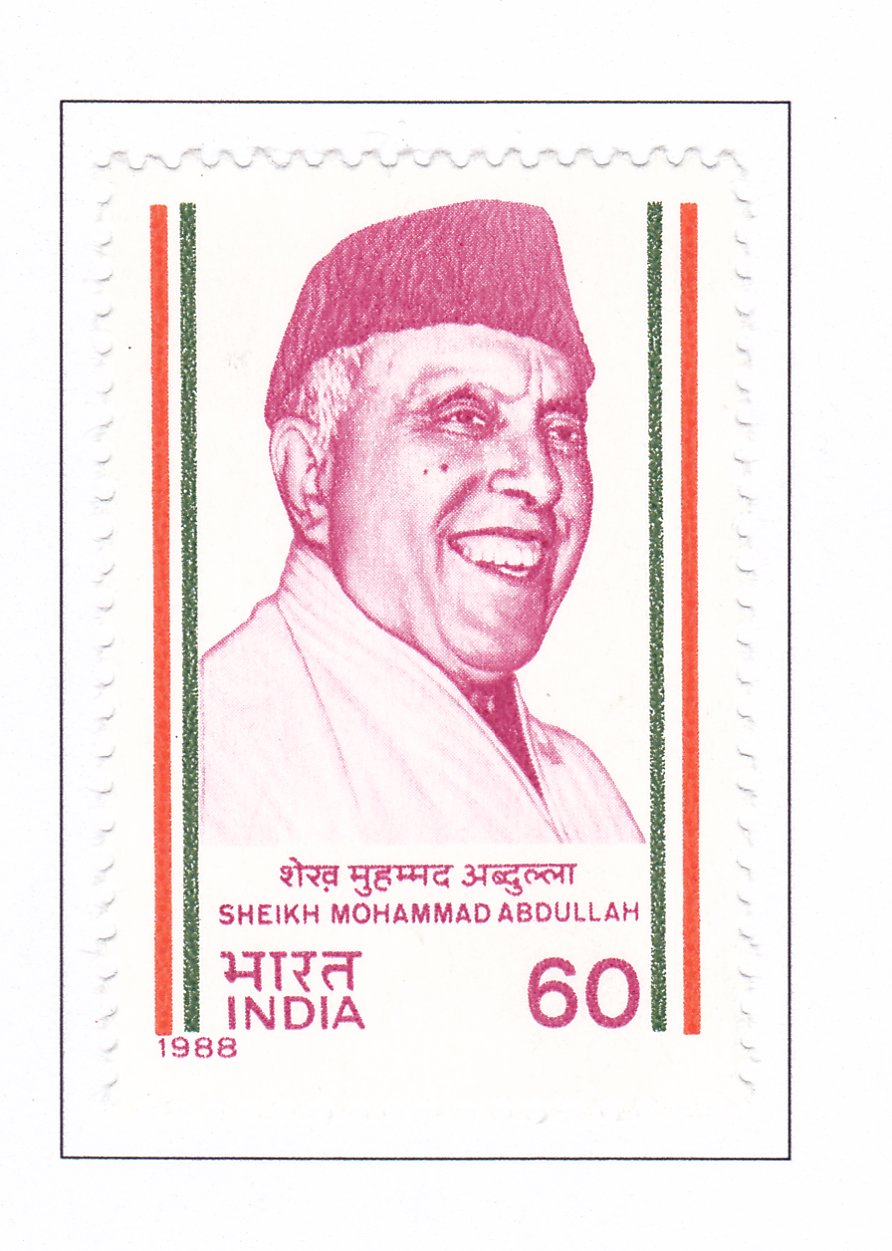Sheikh Mohammad Abdullah

Technical Data
| Stamp Set | India's Struggle for Freedom |
|---|---|
| Date of Issue | December 5, 1988 |
| Denomination | 60 p |
| Quantity | 1,000,000 |
| Perforation | comb 13 |
| Printer | Security Printing Press, Nashik |
| Watermark | No Watermark |
| Colors | Multicolor |
| Catalog Codes |
Michel IN 1193 Stamp Number IN 1268 Yvert et Tellier IN 1003 Stanley Gibbons IN 1296 |
| Themes | Famous people | Headgear | Men | Politicians |
Shaikh Mohammad Abdullah
Early Life and Education:
- Date and Place of Birth: Born on December 5, 1905, in Soura, Srinagar, Kashmir.
- Education: Graduated from Lahore and obtained a Master’s Degree in Chemistry from Aligarh Muslim University in 1930.
Political Career:
- Beginnings: Started his political career in 1931 by organizing the Kashmiri masses under the banner of the Jammu and Kashmir Muslim Conference.
- Transformation to National Conference: In 1939, he converted the Muslim Conference into the National Conference, giving it a broader base and incorporating more communities.
- Naya Kashmir: Formulated a socio-political and economic program called “Naya Kashmir,” adopted by the National Conference.
Role in the Freedom Movement:
- Quit Kashmir Movement: Launched the “Quit Kashmir” movement on the eve of partition, demanding the repudiation of the Treaty of Amritsar and denouncing the prince’s ‘divine right’ to rule.
- Sedition Trial: Tried for sedition, sentenced to nine years’ imprisonment, and fined Rs. 1500/-, despite a strong defense by prominent leaders like Pt. Jawaharlal Nehru, Asif Ali, Bhagwan Sahay, Diwan Chaman Lal, Pandit Jai Lal Kilam, and others.
Post-Partition Era:
- Head of Administration: Appointed Head of Administration when the Maharaja’s administration collapsed during the tribal raids in 1947.
- Resistance and Communal Harmony: Organized the people to resist the raiders until the Indian Army’s arrival. Ensured Kashmir stayed free from communal disharmony during the sub-continent’s communal strife.
- First Popular Prime Minister: Became the first popular Prime Minister of the State in March 1948.
- Constituent Assembly and UN: Member of the Indian Constituent Assembly, signatory to the Indian Constitution, and part of the Indian delegation to the United Nations in 1948-49.
Contributions and Reforms:
- Agrarian Reforms: Terminated the Jagirdari system, abolished large landed estates, fixed land ceilings, liquidated debts, and transferred land to landless peasants.
- Political Reforms: Replaced hereditary rule with an elected head of government and recognized the education system.
- Decentralization: Introduced the concept of decentralization of power by constituting District Development Boards.
- Post-1975 Developments: After the 1975 Indira-Abdullah Accord, laid a new foundation for the overall development of the State, ushering in an era of peace and political stability.
Death:
His eventful life came to an end on September 8, 1982.
Material for Text, Courtesy:
Text provided by contributors acknowledging his significant contributions to the State and the country.
